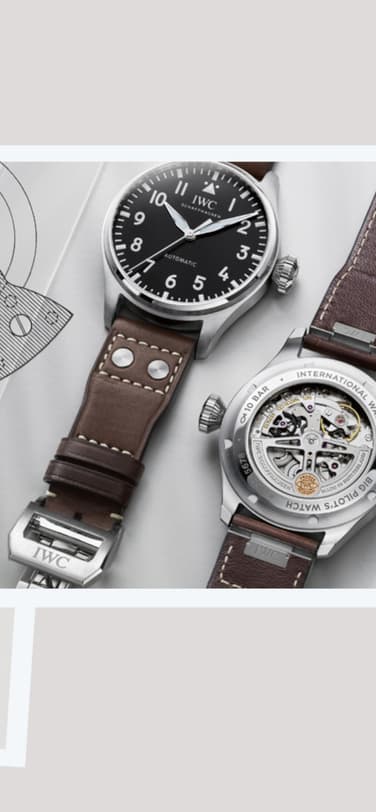The Journal
HOW TO…? CUSTOMER CARE FAQ
FIND ANSWERS TO YOUR QUESTIONS ABOUT AUTOMATIC- AND HAND-WOUND MOVEMENTS, CHRONOGRAPHS, WATER RESISTANCE, AND WATCH SERVICING HERE.
Read Time: 2 min

London-based watch journalist Justin Hast pays a visit to IWC’s Manufacture Center in Schaffhausen and - with the help of on-location watch specialists - finds answers to the six most frequent queries for IWC’s Customer Service.
To view videos, please rotate your mobile phone.
WHY INVEST IN A LUXURY WATCH?
The purchase of a fine mechanical watch is not a decision made overnight. Whether it is the 1st or 10th timepiece in the collection, intended as a gift to a loved one, or as a reward for a successful college graduation or job promotion, the final choice is usually the product of an appreciation of design and engineering, balanced by the weight of numerous emotions. And what exactly does the production process of a luxury timepiece look like? Markus Buehler from IWC’s Watch Movement Assembly Team reveals some fascinating production details.
AUTOMATIC OR HAND-WOUND? HOW DOES ONE DECIDE?
Possibly the most debated question is whether to buy a mechanical watch with an automatic or hand-wound movement. As always, in the complicated world of haute horlogerie, there is no simple answer. Much depends on your individual taste, your character and even your intuition or gut feeling. IWC Watchmaker Florian Salzer explains the differences between the two movements.
HOW TO ENSURE WATER RESISTANCE
Aside from magnetism, a mechanical watch has no greater nemesis than water and the outcome of an encounter. In such case, it all boils down to the mastery of engineering and, above all, trust. But what does it mean for a diving watch to be water resistant? And how does one ensure that it remains that way? In this episode, we plunge into this aspect and hear from watch collector and hobby diver Mark Levinson on why he chooses to rely on his Aquatimer.
HOW TO USE A CHRONOGRAPH
How often do you need to measure an exact time interval? It’s actually more frequently than you think: tracking bike rides, runs, exercise routines or cooking times, or to tell your kid to turn off the TV in five minutes. But how exactly does a chronograph work? And what types of chronographs are there? This is IWC Watchmaker Sabrina Herzog’s field of expertise and she clarifies the differences between the basic, the double, and the flyback chronograph.
HOW TO GET YOUR WATCH SERVICED
There are several misconceptions about servicing and when you should consider it. Justin speaks with Christoph Bippus about why a watch needs a service, what it entails, and how frequently you should have one to keep your beloved timepiece working beautifully.
HOW TO REQUEST A CERTIFICATE OF AUTHENTICITY
If you inherited a stunning IWC watch from your grandparents, how would you check whether it was an original IWC? The first step is to bring it to an IWC Boutique or authorised retailers to have it sent to Schaffhausen and authenticated. In this video, Elvira Judas from IWC’s Customer Service’s “Team Vintage” shares some insights into the authentication process, and discloses how many specialists are involved.